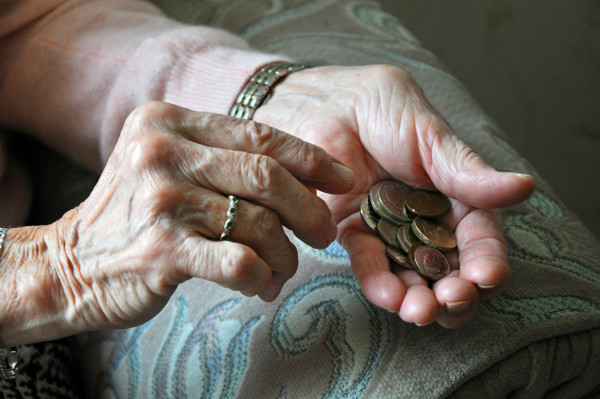

Providers and advisers are split on what the cap on social care costs should be with some saying it could be £50,000 whereas others want to see it set at £100,000.
The government has not specified what a cap on social care costs could look like but there are reports the prime minister is looking to increase national insurance to fund reform in this area.
A cap on cost has been suggested for a while. It was first put on the table a decade ago by Sir Andrew Dilnot and while legislation was passed to enable the government to cap the cost of care it was never implemented.
In response to the latest rumours industry figures have discussed what such a cap should look like.
Research from Just Group found the idea of a cap was popular with 61 per cent of over-45s.
Stephen Lowe, group communications director at Just Group, said: “This level of support for capping costs reflects the fact that people know that whether they will need care is a lottery and, while happy to contribute, they fear having to write a blank cheque.
“It is important to note that the cap was originally designed to cover personal care but not spending on ‘hotel’ costs such as food and accommodation which the individual would still be expected to pay themselves.”
But Steven Cameron, pensions director at Aegon, pointed out the lower the cap is the more will need to be raised through tax and NI.
Previous administrations have considered a cap at somewhere between £50,000 and £80,000.
Cameron said it was unlikely the cap would be under £50,000 but there was a possibility it could be set higher.
He said: “The cap is particularly important as it avoids any individual facing ‘catastrophic’ costs and allows people to plan ahead for their contribution.
“Another approach would be to set it based on duration of needing care – so no-one would be asked to pay for more than say two years of care costs.”
But others were against the idea of a low cap saying people should use their other assets to help fund care costs.
Felix Milton, chartered financial planner at Philip J Milton & Company, said: “It’s frankly ludicrous in my eyes that the government is so fixated on ensuring that the family home is protected.
“A cap of £50,000 is extremely generous and I’d like to see the cap doubled perhaps if that is the government’s plan, and if the family home has to be sold to pay for care, so be it.”
Other options
The industry has previously come up with a number of reform suggestions including a Care Isa and Care pension but so far nothing has been picked up by government.
But Cameron said these ideas may not have been shelved as the mooted NI hike would be to pay for the government’s share of care costs, and individuals would still need to pay their share up to the cap.
Cameron said: “They might do so by taking out an insurance product or by earmarking savings so they have an amount up to the cap available.
“Care Isas are one suggestion, but we’d favour individuals trying to save more in their pension. When going into drawdown, they could notionally ringfence some of the proceeds up to the cap and seek to live off the balance.”
Milton agreed, saying other ideas might be unveiled “at the same time as the official announcement of the NI increase”.
But Lowe cautioned policy could be “a little way off” as so many ideas have been floated in recent times.
Lowe said: “The Prime Minister himself suggested yesterday that it may yet be some time before a policy is announced, when he said: ‘All I can say is we’ve waited three decades, you’re just going to have to wait a little bit longer’.
“Whatever solution the government chooses to bring forward, clients will still need the expertise and guidance of financial advisers to help them with their later-life plans.”
Mike Padgham, chairman of the Independent Care Group, said any reform would be welcomed as it has been a long time coming.
Padgham said: “We have long campaigned for better funding for social care and believe that people would be prepared to pay a little more in taxation or national insurance, or a combination of both, in return for a properly-funded, fair social care system.
“This might not be the perfect solution for everyone, but we have to make a start and refine as we go along, rather than keep talking.
“At the same time, this can only be the very start of reform and has to be a part of a root and branch overhaul of the system to make it fit for purpose.”
amy.austin@ft.com
What do you think about the issues raised by this story? Email us on FTAletters@ft.com to let us know



